Conceiving Hope – Your Partner in the Fertility Journey

At Nordic Fertility Center, we understand the profound journey potential parents embark on, driven by the hope of bringing new life into their families. Our dedication lies in offering compassionate care, grounded in innovation and guided by the successes we've shared with countless individuals and couples.
The path to parenthood, we believe, is as unique as the individuals walking it, and it's our privilege to be a part of your story, offering support, expertise, and understanding every step of the way.
In the realm of fertility, knowledge is more than just power—it's empowerment. Making informed decisions is crucial, not only for the success of fertility treatments but also for the peace and confidence it brings to those dreaming of parenthood.
At Nordic Fertility Center, we're committed to ensuring that every question is answered, every concern is addressed, and every option is explored. Our goal is to provide you with all the necessary information, allowing you to make choices that are right for you, both emotionally and physically.
We believe in a world where the journey to parenthood, though sometimes challenging, is always enveloped in care, understanding, and the highest standards of fertility science. Welcome to Nordic Fertility Center, where your dream of family is nurtured with the utmost respect and dedication.


Fertility is a deeply personal, complex journey that varies significantly from one individual to another. Understanding the nuances of fertility can empower individuals and couples to make informed decisions about their paths to parenthood.
Understanding Fertility
Fertility refers to the natural capability to conceive a child. While the process of conception might seem straightforward, the journey to becoming pregnant can be intricate, influenced by numerous factors including biology, health, and external conditions.
Common Concerns and Misconceptions
- "It's easy to conceive."
Many believe that conception will occur quickly once they decide to have a child. However, it's common for healthy couples to take several months to conceive. Factors such as timing, health conditions, and even stress levels can affect the chances of conception.
- "Fertility issues are primarily a woman's concern."
Fertility is not solely a woman's issue; it involves both partners. Male fertility, including sperm quality and quantity, plays a crucial role in the ability to conceive.
- "Lifestyle has no impact on fertility."
Lifestyle factors, including diet, exercise, smoking, and alcohol consumption, can significantly impact fertility for both men and women. Maintaining a healthy lifestyle can improve your chances of conception.
The Importance of Early Consultation
Consulting a healthcare provider early in your journey to parenthood can provide invaluable guidance. A fertility specialist can offer insights into your fertility status, recommend lifestyle adjustments, and identify any underlying issues that may hinder conception. Early consultation also opens the door to discussing fertility preservation options, such as egg or sperm freezing, particularly relevant for those who plan to start their families later in life.
The Role of Lifestyle, Medical History, and Age
Lifestyle Factors
A balanced diet, regular exercise, and avoiding harmful substances like tobacco and excessive alcohol can enhance fertility. Stress management is also crucial, as high stress levels have been linked to difficulties conceiving.
Medical History
Previous surgeries, chronic illnesses, sexually transmitted infections, and certain medications can affect fertility. Sharing your complete medical history with your healthcare provider can help identify potential barriers to conception.
Age
Age is one of the most significant factors in fertility. Women's fertility begins to decline in their late 20s to early 30s, with a more marked decrease after age 35. Men also experience a decline in fertility, although it typically occurs later, around age 40. While age cannot be controlled, understanding its impact can assist in planning your path to parenthood.

How We Help - Our Services and Technologies
At Nordic Fertility Center, we're dedicated to helping individuals and couples navigate their journey to parenthood with the most advanced, compassionate care available. Our comprehensive range of services and cutting-edge technologies are designed to address a wide array of fertility challenges, ensuring that every patient receives personalized care tailored to their unique needs. Below, we detail our services, the innovative technologies we employ, and share heartfelt success stories from our patients.
Comprehensive Fertility Services
In Vitro Fertilization (IVF)- Our IVF program is at the heart of our services, offering hope to many who have faced challenges in conceiving naturally. This process involves fertilizing an egg with sperm outside the body and implanting the embryo into the uterus, with protocols tailored to each patient's specific circumstances.
Intrauterine Insemination (IUI)- IUI is a simpler fertility treatment compared to IVF, involving the direct placement of sperm into the uterus to facilitate fertilization. This method is often recommended as a first step in fertility treatment, depending on individual diagnoses.
Fertility Assessments- Comprehensive fertility assessments are crucial in developing an effective treatment plan. Our evaluations include hormone testing, semen analysis, ovarian reserve testing, and uterine cavity exams, among others, to identify fertility issues accurately.
Counseling and Support Services- Recognizing the emotional challenges of fertility treatments, we offer counseling and support services to help our patients cope with the stresses and emotional rollercoasters that can accompany the journey to parenthood.
Cutting-Edge Technologies and Treatments
Genetic Screening- Our genetic screening capabilities, including Preimplantation Genetic Testing (PGT), help identify genetically healthy embryos, significantly increasing the chances of a successful pregnancy and healthy birth.
AI in Embryo Selection- We utilize artificial intelligence (AI) technologies to analyze embryo viability more accurately. This innovative approach improves our ability to select the embryos with the best chances of leading to a successful pregnancy.
Advanced Hormone Treatments- We offer the latest in hormone treatments to address various fertility issues, including ovulation induction and Controlled Ovarian Hyperstimulation (COH), tailored to each patient’s specific hormonal needs.
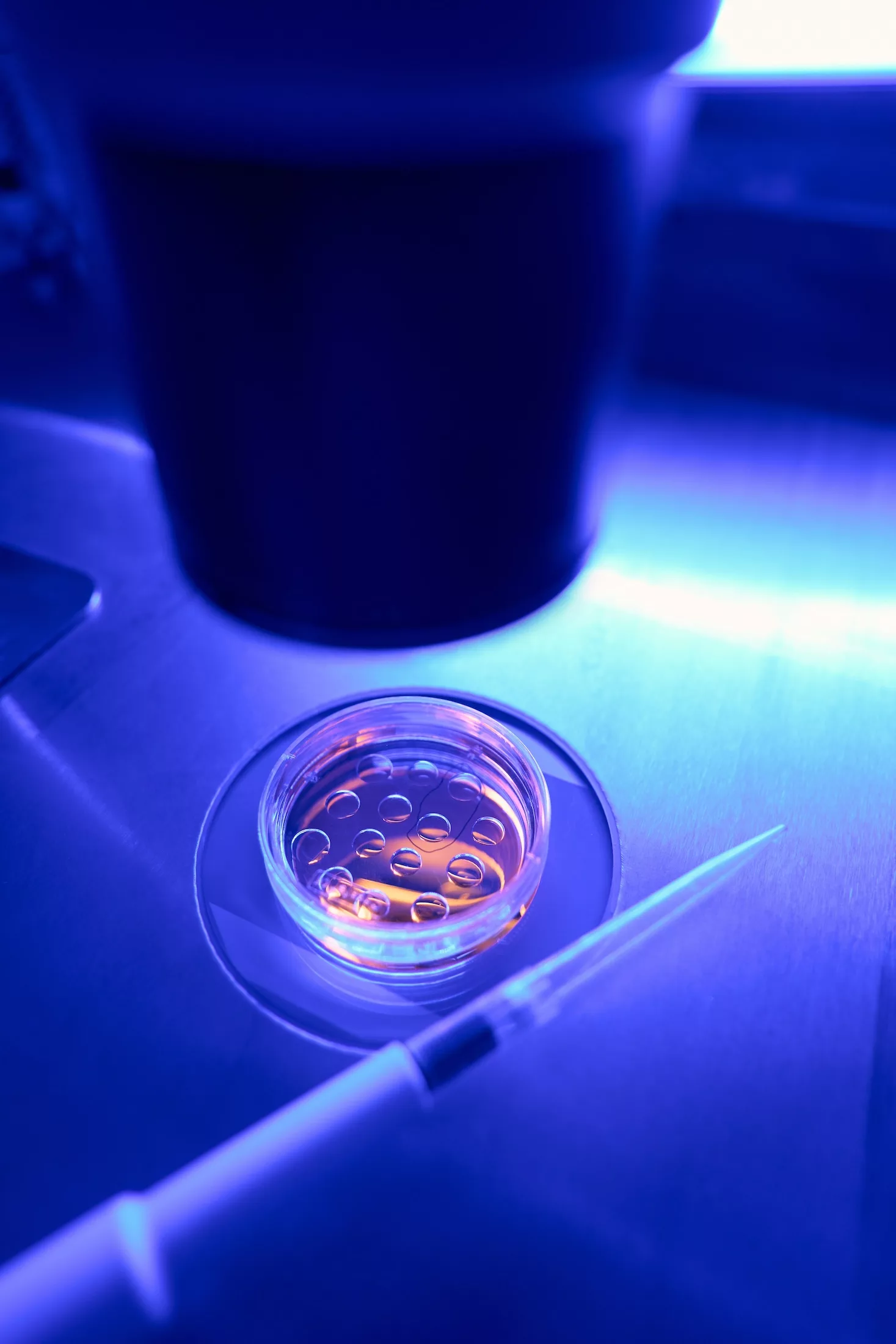
A realistic understanding of IVF success rates
"This shows that for women aged up to 30 years, the average chance of a baby was 43% after one stimulated cycle and 65% after three stimulated cycles. For women aged 42–43, the chance of a baby was 6% after one and 11% after three stimulated cycles.
Research conducted in 2020 analysed data from all women aged 40 years and over who had IVF in Victoria between 2009 and 2016. Of these, 987 used donor eggs and 19,170 used their own eggs.
This study found that women who had used donor eggs were five times more likely to have a live birth than women who had used their own eggs.
People contemplating IVF need transparent and evidence-based information about what is possible with IVF to make well-informed decisions and have realistic expectations if they decide to go ahead."
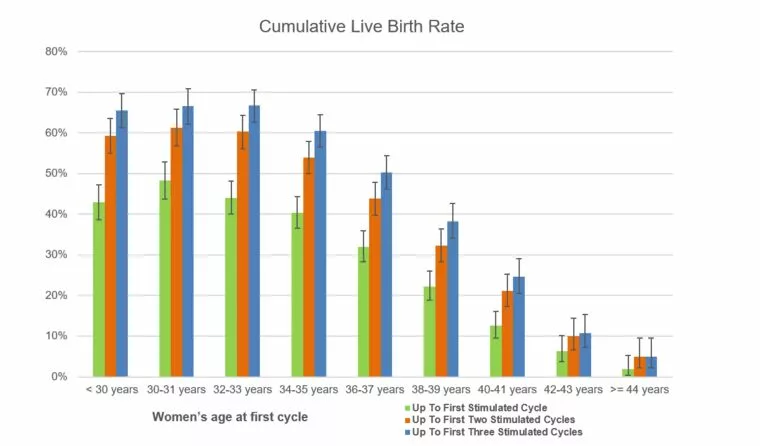
The chart titled "Impact of Age on IVF Success Rates" illustrates how the likelihood of a live birth per IVF cycle decreases with maternal age. The vertical axis represents the live birth rate per cycle, and the horizontal axis categorizes maternal age into five groups.
The bar graph shows a clear trend:
- For women under 35, the live birth rate per IVF cycle is the highest, with the rate beginning to decline for each subsequent age group.
- There is a 15% drop in the success rate for the age group 35-37 compared to those under 35.
- A further 13% drop is seen for the 38-40 age group.
- The 41-42 age group experiences an 11% drop.
- Finally, there's a significant 46% drop in success rates for women over the age of 42 compared to the 41-42 age group.
The dashed line connecting the tops of the bars visually emphasizes the decreasing trend in live birth rates as maternal age increases.
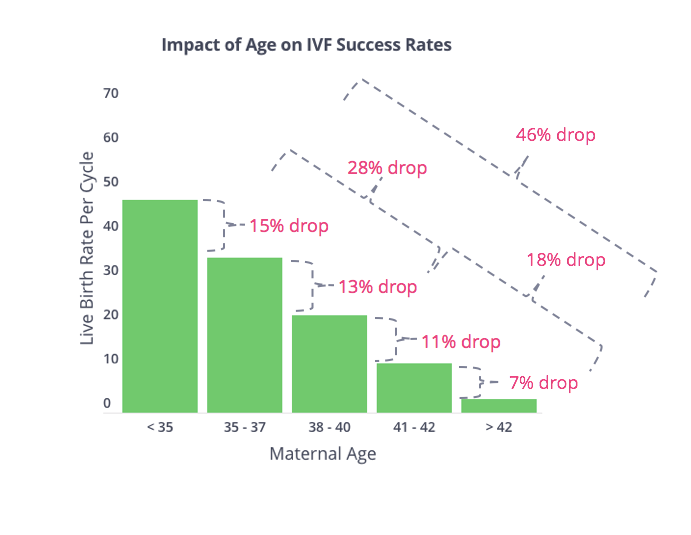
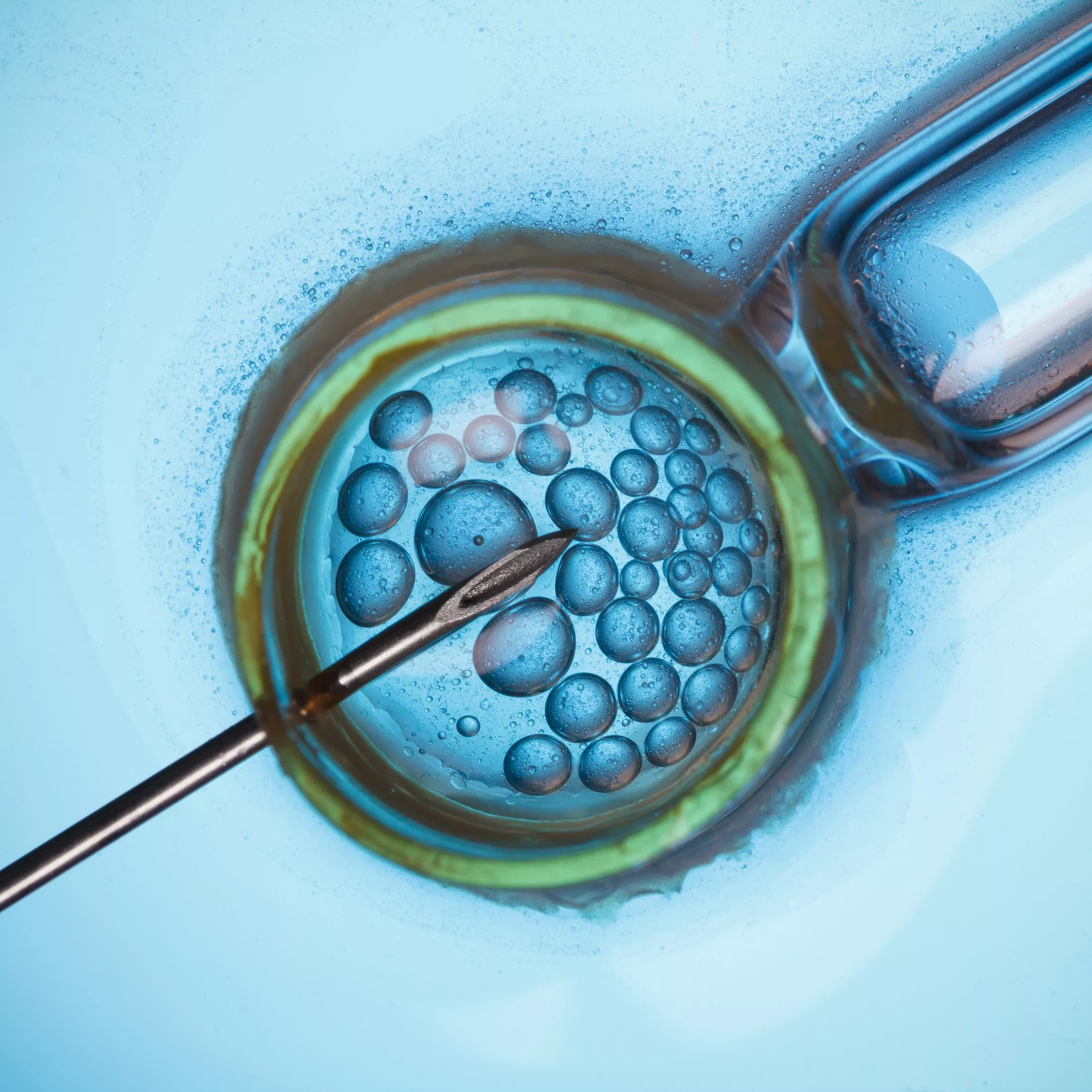
Latest fertility techniques
Intracytoplasmic Sperm Injection (ICSI)
Intracytoplasmic Sperm Injection (ICSI) is a specialized procedure used in conjunction with In Vitro Fertilization (IVF) to treat male infertility issues. It involves the direct injection of a single sperm into an egg to achieve fertilization. The use of ICSI is particularly beneficial in cases where there is very low sperm count, poor sperm motility, or if there has been previous fertilization failure with conventional IVF methods.
Research has indicated that ICSI can improve the chances of fertilization when compared to standard IVF methods. Typically, ICSI fertilizes 50-80% of the eggs it is performed on, which is a substantial increase in efficacy. Despite this improvement in fertilization rates, it's essential to remember that not every fertilized egg will lead to a successful pregnancy, and the overall pregnancy rates for IVF with ICSI are similar to those of IVF without ICSI.
The decision to use ICSI as part of the IVF process usually comes after assessing the specific circumstances of the couple, such as the quality of the sperm and the outcome of previous fertility treatments. It's also used when sperm needs to be extracted surgically due to the absence of sperm in the ejaculate or the inability to ejaculate normally.
The success rates for ICSI can vary widely depending on several factors, including the ages of the individuals involved. Generally, the younger the woman, the higher the chance of a successful pregnancy, with rates decreasing as age increases. For example, success rates can be around 44% for women aged 18-34, but they drop to about 2% for women aged 45 and over.
Egg Donation
Egg donation is a process where a woman donates her eggs to another woman or a couple to help them conceive a child. This technique is often used when the recipient's eggs are not viable for pregnancy due to various reasons such as age, genetic conditions, or premature ovarian failure. The donated eggs are fertilized in a laboratory with sperm (from the recipient's partner or a sperm donor), and the resulting embryos are transferred to the recipient's uterus.
Preimplantation Genetic Testing (PGT)
PGT is a sophisticated technique that involves genetic testing of embryos before they are transferred to the uterus. This is done as part of an IVF (In Vitro Fertilization) process. PGT can screen for specific genetic diseases, chromosomal abnormalities, and even for the preferred sex of the child in some cases. It helps in ensuring that the embryos transferred are healthy and increases the chances of a successful pregnancy and a healthy baby.
Pharmaceutical Drugs for Fertility
Various pharmaceutical drugs are used to enhance fertility, primarily by stimulating ovulation. These medications can be used in cases of infertility where ovulation is irregular or absent. Examples include:
- Clomiphene Citrate (Clomid): Stimulates ovulation by encouraging the pituitary gland to release more FSH and LH, which stimulates the growth of an ovarian follicle containing an egg.
- Gonadotropins: These are injections that directly stimulate the ovaries to produce multiple eggs.
- Letrozole: A newer class of medication that induces ovulation, sometimes used as an alternative to Clomid.
Ovulation Induction
Ovulation induction is a common fertility treatment for women who do not ovulate regularly or at all. Medications are used to stimulate the ovaries to produce one or more eggs. This treatment is often used in conjunction with timed intercourse or artificial insemination to achieve pregnancy.
Surgical Sperm Extraction (SSE)
SSE is a group of surgical procedures used to collect sperm in cases of male infertility, especially when there's an obstruction preventing sperm from being ejaculated or in cases of non-obstructive azoospermia (where sperm is produced but not present in the ejaculate). Techniques include:
- TESE (Testicular Sperm Extraction): Extracting sperm directly from the testes.
- MESA (Microsurgical Epididymal Sperm Aspiration): Collecting sperm from the epididymis, often used when there's a blockage in the vas deferens (is a method doctors use to help men who have trouble getting sperm out the usual way because of a blockage. Think of it like a tiny, precise surgery where doctors go directly to a part of the man's reproductive system called the epididymis, which is where sperm hangs out and matures. If there's a blockage in the tubes that carry sperm (called the vas deferens), the sperm can't make it out. So, during MESA, doctors carefully get some sperm from the epididymis).
Cryopreservation
Cryopreservation is the process of freezing and storing cells, tissues, or organs at very low temperatures to preserve their viability. In fertility treatments, this technique is used for:
- Egg freezing (oocyte cryopreservation): Allows women to preserve their fertility by freezing eggs at a younger age to use later.
- Sperm freezing: Used for preserving sperm for future use, particularly before cancer treatment that might affect fertility.
- Embryo freezing: Freezing embryos that are not used in the first IVF cycle for future use.
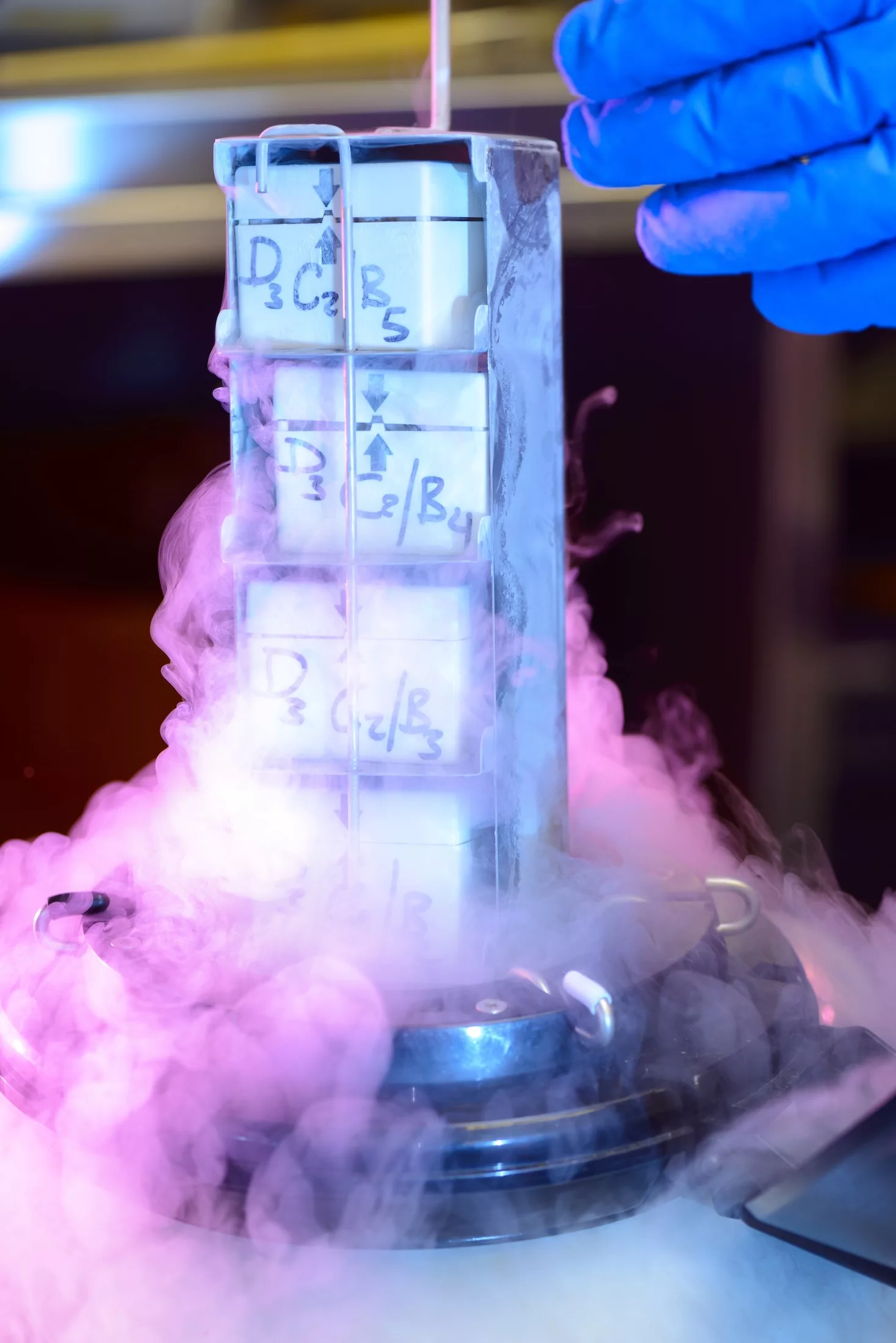
STEP-BY-STEP GUIDE for your FERTILITY JOURNEY
At Nordic Fertility Center, we understand that each patient's fertility journey is unique. We offer a personalized and compassionate approach, guiding you through every step of the process. How we accompany you from the first consultation to the joy of pregnancy and beyond:
Step 1 - Initial Consultation
Personal Connection- You'll meet with one of our specialists who will take the time to understand your individual situation, including your medical history, fertility goals, and previous interventions.
Fertility Assessment- A thorough fertility evaluation is conducted, encompassing necessary tests such as blood work, ultrasounds, and semen analysis if applicable, to establish a baseline for your customized care plan.
Step 2- Personalized Treatment Plan Development
Informed Decisions- After a comprehensive review of your test results, your specialist will sit down with you to discuss all findings, address concerns, and explore potential fertility solutions.
Customized Strategy- We will design a tailored treatment plan that takes into account factors such as your age, health history, specific fertility challenges, and personal desires.
Step 3- Fertility Treatments
Gentle Beginnings- For some, the journey may begin with less invasive methods such as fertility medications or IUI, aiming for the simplest path to pregnancy.
Advanced Options- Other patients may require more complex ART (Assisted Reproductive Technology), treatments like IVF or ICSI, or might explore egg/sperm donation, all utilizing the latest technologies available.
Step 4- Ongoing Monitoring
Progress Tracking- Through regular appointments, we'll monitor your body's response to treatment and the growth of follicles, adjusting protocols as necessary.
Supportive Care- Recognizing the emotional toll of fertility treatments, our clinic provides counseling and support to ensure your well-being.
Step 5- The Procedure
Precise Retrieval- If you're undergoing IVF, we'll carefully retrieve mature eggs in a minimally invasive procedure once they are ready.
Expert Fertilization- Our embryologists will then fertilize the eggs with sperm in our state-of-the-art lab to create viable embryos.
Step 6- Embryo Transfer
Embryo Placement- We'll transfer one or more embryos into the uterus at the optimal time to encourage implantation.
Continued Care- Post-transfer, we may supplement with hormones like progesterone to support the uterine lining and encourage a successful pregnancy.
Step 7- Pregnancy Testing
Anticipated Outcomes- After a period of waiting, we'll conduct a pregnancy test to determine if the treatment has been successful.
Thoughtful Follow-Up- Your specialist will review the results with you and discuss any further steps if necessary.
Step 8- Follow-Up Care
Celebrating Success- With a positive pregnancy test, we'll commence prenatal care and celebrate this milestone with you.
Ongoing Partnership- Should the need arise to explore further treatments, we're here to provide comprehensive support, resources, and discuss the next steps in your fertility journey.
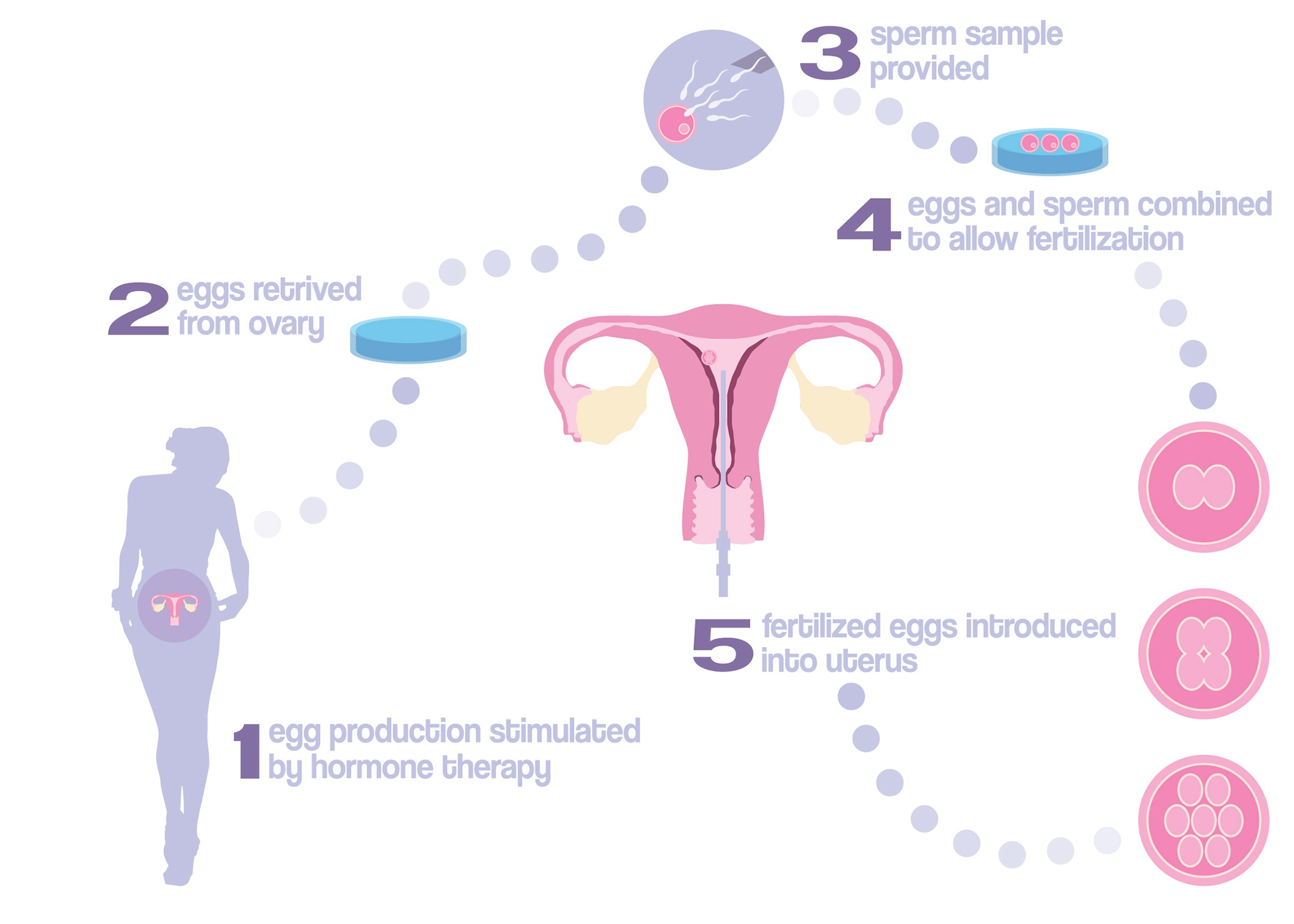
Overcoming Challenges Together
Fertility journeys can present numerous emotional and physical challenges for individuals and couples alike. At Nordic Fertility Center, we are acutely aware of these challenges and are committed to supporting our patients every step of the way.
Emotional Challenges
- Stress and Anxiety- The uncertainty and the intense emotions associated with fertility treatments can lead to heightened stress and anxiety levels.
- Relationship Strain- Couples often experience strain on their relationships due to the emotional and sometimes financial pressures of treatment.
- Grief and Loss- Experiences of loss, such as miscarriage or unsuccessful treatment cycles, can lead to profound grief.
- Isolation- Individuals may feel isolated or misunderstood by family and friends who haven't faced fertility issues.
To help manage these emotional challenges, our center provides
- Support Groups- We facilitate support groups where patients can meet others on similar paths, share experiences, and offer mutual support.
- Mental Health Counseling- Our on-staff counselors specialize in fertility and can assist with coping strategies, stress reduction techniques, and provide therapeutic support.
- Mind-Body Workshops- We offer workshops focusing on mind-body techniques such as meditation, yoga, and mindfulness to help reduce stress and improve emotional well-being.
Physical Challenges
- Side Effects of Treatment- Fertility medications can cause side effects ranging from mild discomfort to more serious conditions like OHSS (Ovarian Hyperstimulation Syndrome).
- Surgical Recovery- Procedures like egg retrieval or laparoscopy require recovery time, which can be physically demanding.
- Fatigue- The physical and emotional toll of fertility treatments can lead to fatigue and exhaustion.
We offer the following to assist with physical challenges
- Medical Support- Our medical team is available to manage and mitigate the side effects of treatment, ensuring that patients are as comfortable as possible.
- Nutritional Counseling- Proper nutrition is vital during treatment. Our nutritionists can provide personalized dietary plans to support treatment and recovery.
- Physical Therapy- For physical discomfort or recovery post-procedure, we have resources for physical therapy and referrals to specialists if needed.
By providing a comprehensive support system, Nordic Fertility Center ensures that our patients do not have to navigate their fertility journey alone. We believe in a holistic approach, recognizing the interconnectedness of emotional and physical health, and strive to provide resources that cater to all aspects of our patients' well-being.


Financing Your Dream
At Nordic Fertility Center, we are keenly aware that financial considerations are a crucial aspect of your fertility journey. In Romania, the cost of fertility treatments can range significantly, with an average price around $3,086. The variability in costs reflects different levels of care and services provided by clinics. Patients can choose from a variety of treatment options that may affect the overall cost, such as IVF, ICSI, or egg donation, among others.
To ease the financial burden, our clinic offers several supportive measures
- Payment Plans- We understand that not all patients can afford to pay for treatment in one lump sum, so we provide structured payment plans to spread out the cost over time.
- Insurance Coverage- While the specifics can vary, we will work with you to understand and maximize any fertility treatment coverage your insurance might offer.
- Financial Assistance Programs- We are connected with various financial assistance programs and can help you navigate and apply for any that you may be eligible for.
Each patient's situation is unique, and we commit to transparency in our pricing and will work with you to find the best financial solution to support your journey to parenthood.
Making an Informed Decision
Exploring fertility treatment options is a significant step towards building your family. It's essential to gather all the necessary information, understand the various treatments available, and consider how they align with your personal and medical needs. At Nordic Fertility Center, we're dedicated to providing you with personalized advice, tailoring our approach to meet your specific situation.
We invite you to schedule a consultation with our specialists, where we can discuss your needs, concerns, and any questions you may have.
Together, we'll navigate your options and embark on the path that's right for you.
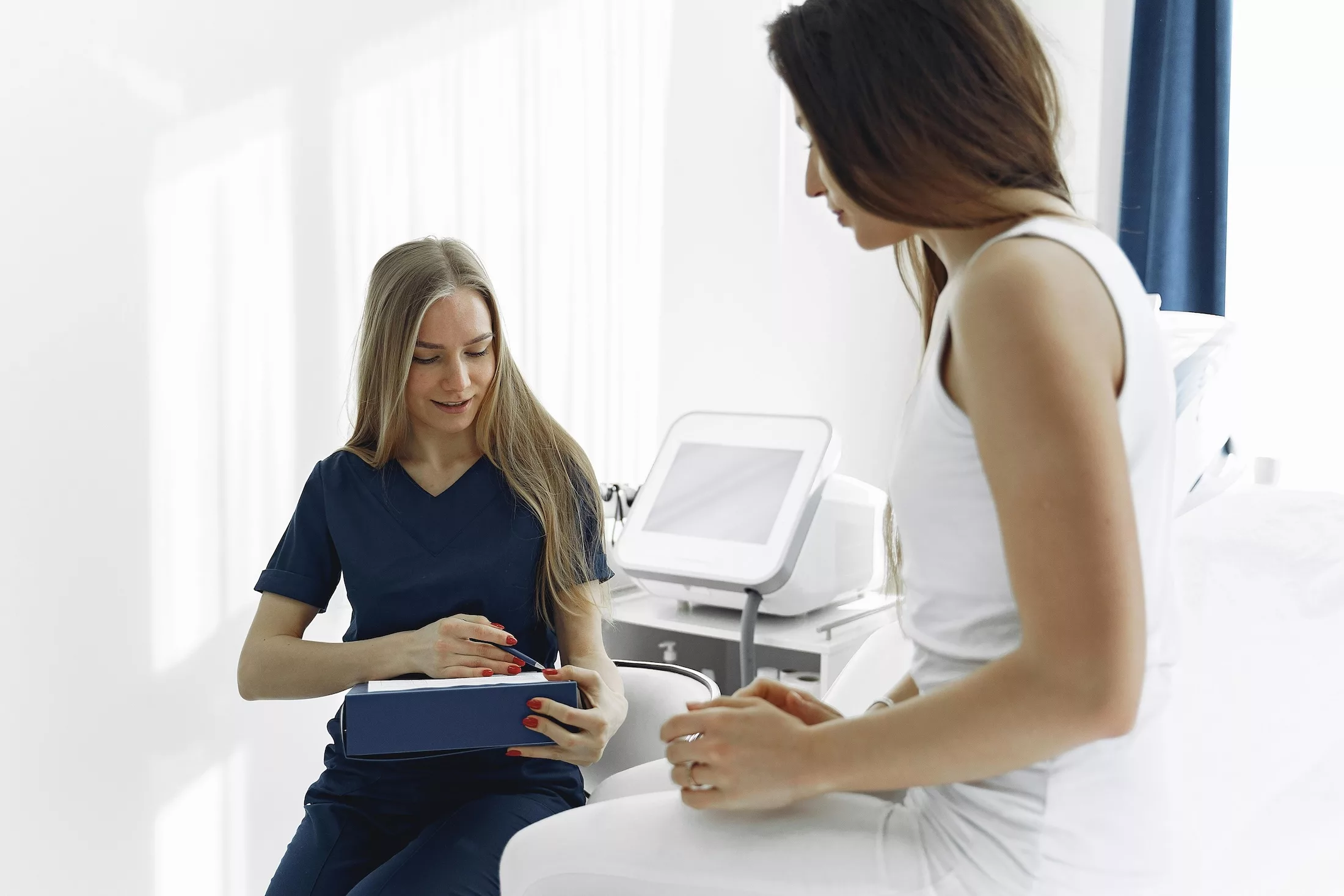
latest fertility research
The article explores four groundbreaking fertility treatments on the horizon: lab-grown eggs and sperm from skin cells, potentially revolutionizing reproductive options; human genome editing aimed at preventing heritable diseases, though safety concerns persist; "three-person baby" IVF, a technique to eliminate certain genetic diseases, with calls for more flexible laws; and synthetic embryos, challenging legal and ethical norms, with potential to advance human developmental understanding.
These advancements signal a future where reproductive and genetic technologies could significantly impact human fertility and disease prevention.

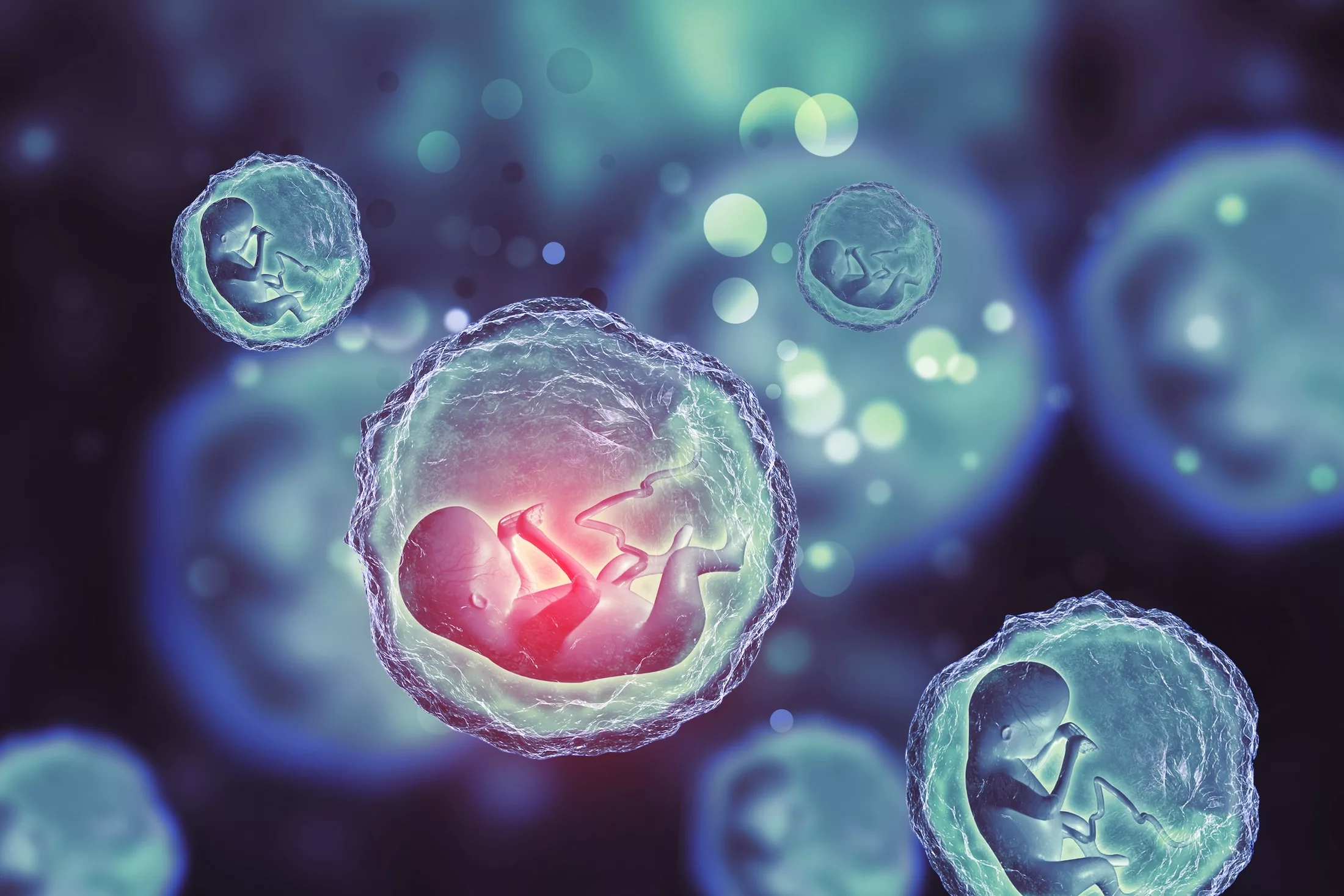
latest fertility research
The article discusses the potential of in vitro gametogenesis (IVG) to revolutionize fertility treatment by generating eggs and sperm from adult cells, highlighting its benefits for older women and those affected by cancer treatments.
Despite its promise, IVG faces significant challenges and is likely decades away from clinical application.
It also explores interim solutions like in vitro oocyte rejuvenation (IVOR), focusing on enhancing mitochondrial function in eggs to improve fertility outcomes, a more immediately feasible approach than IVG with promising early results.
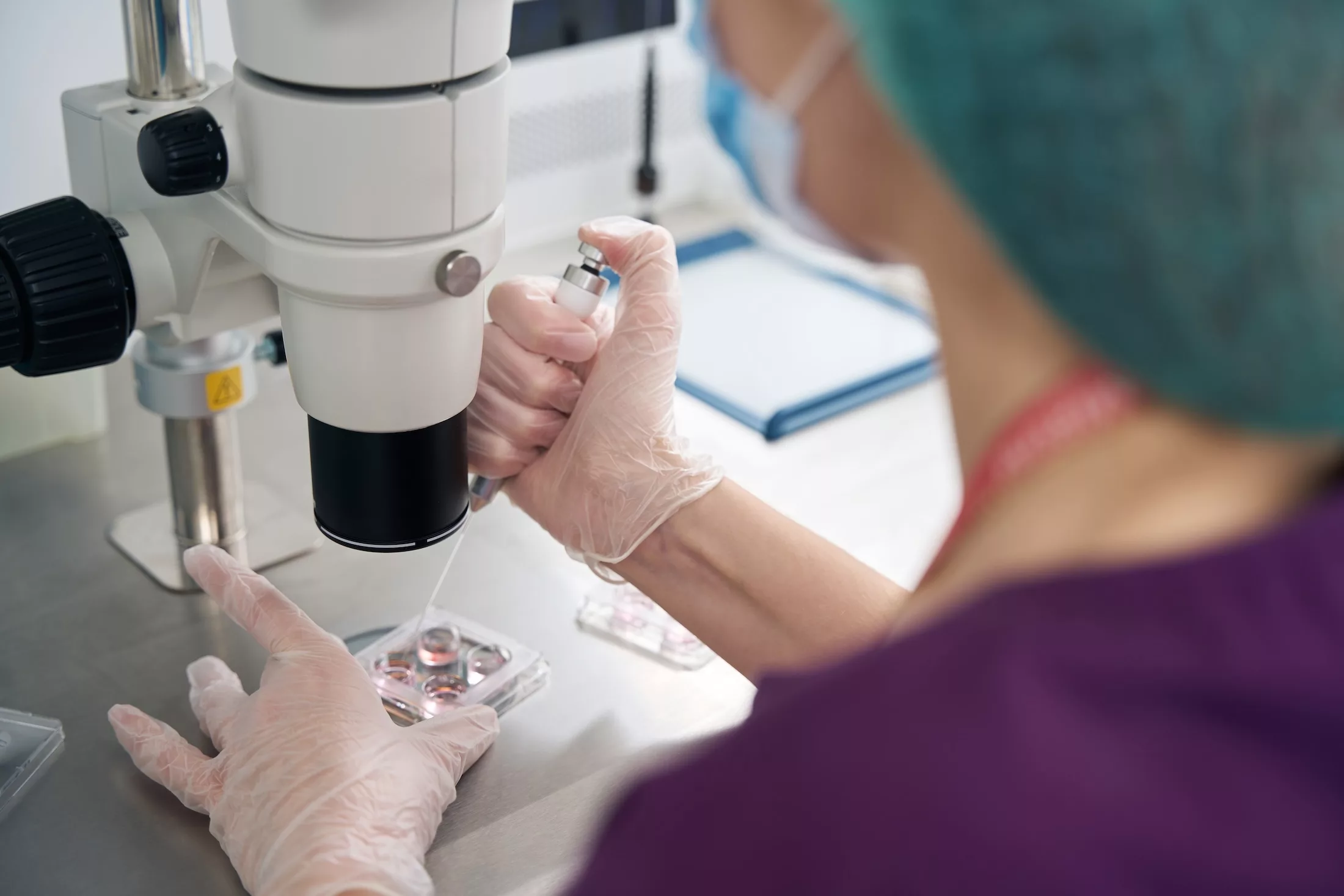

committed to supporting our patients throughout their fertility journey
At Nordic Fertility Center, we are deeply committed to supporting our patients throughout their fertility journey, every step of the way.
Our team is dedicated to providing personalized care and the latest in fertility treatments, aiming to bring you closer to your dream of parenthood.
With hope and encouragement, we stand ready to help you navigate this journey, believing in the possibility of new beginnings. We invite you to join us at Nordic Fertility Center, where your dreams of family become our mission.
Making an Informed Decision
Exploring fertility treatment options is a significant step towards building your family. It's essential to gather all the necessary information, understand the various treatments available, and consider how they align with your personal and medical needs. At Nordic Fertility Center, we're dedicated to providing you with personalized advice, tailoring our approach to meet your specific situation.
We invite you to schedule a consultation with our specialists, where we can discuss your needs, concerns, and any questions you may have.
Together, we'll navigate your options and embark on the path that's right for you.


